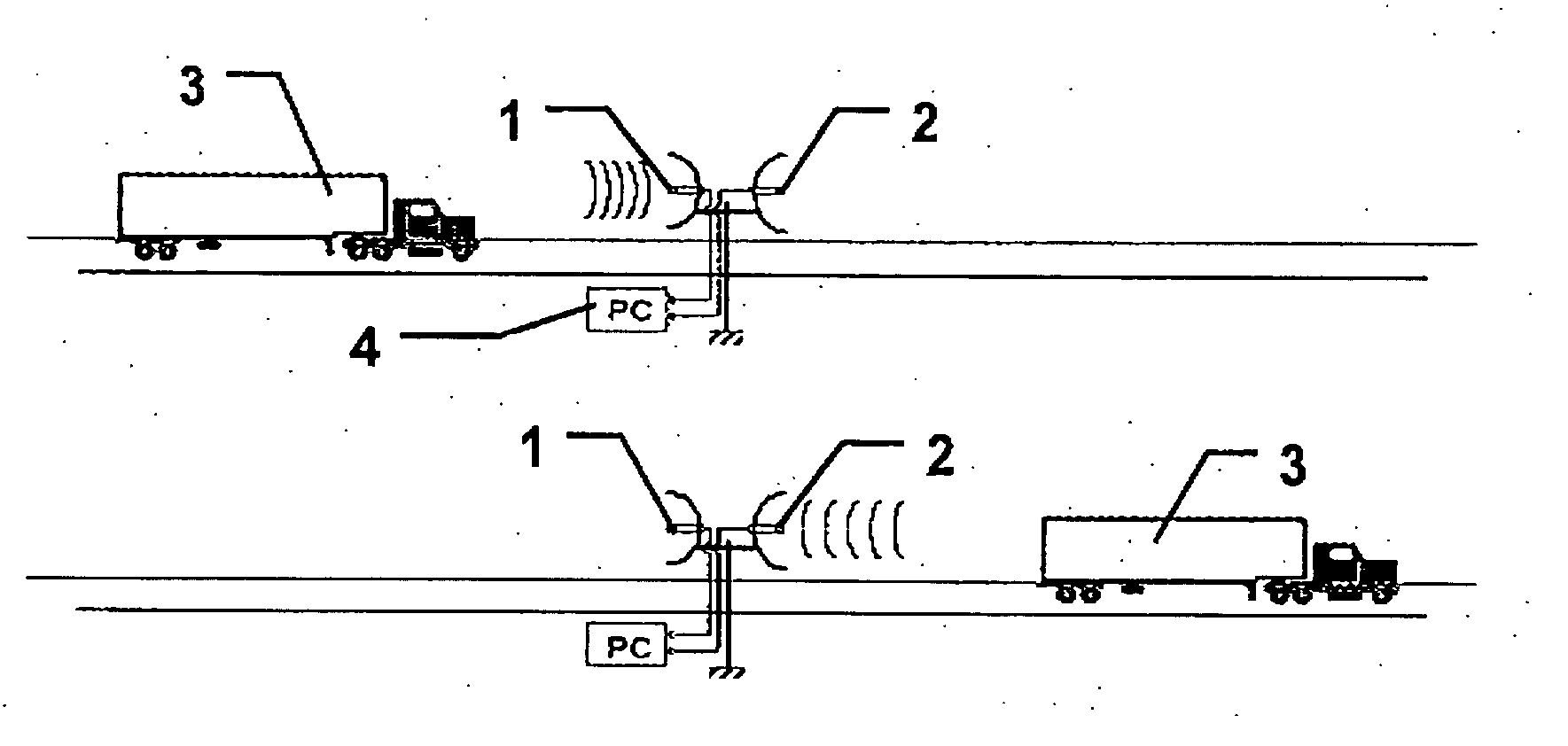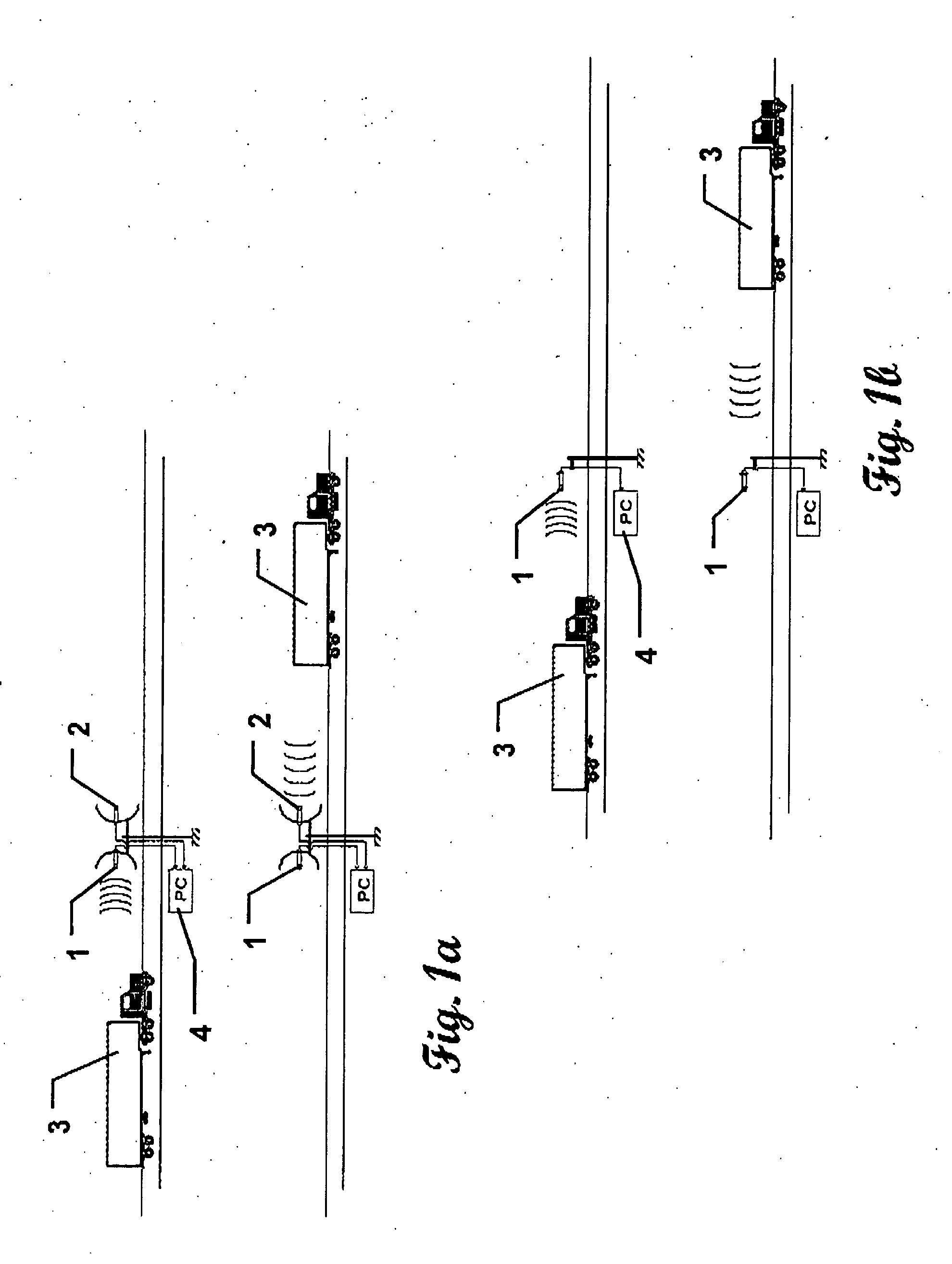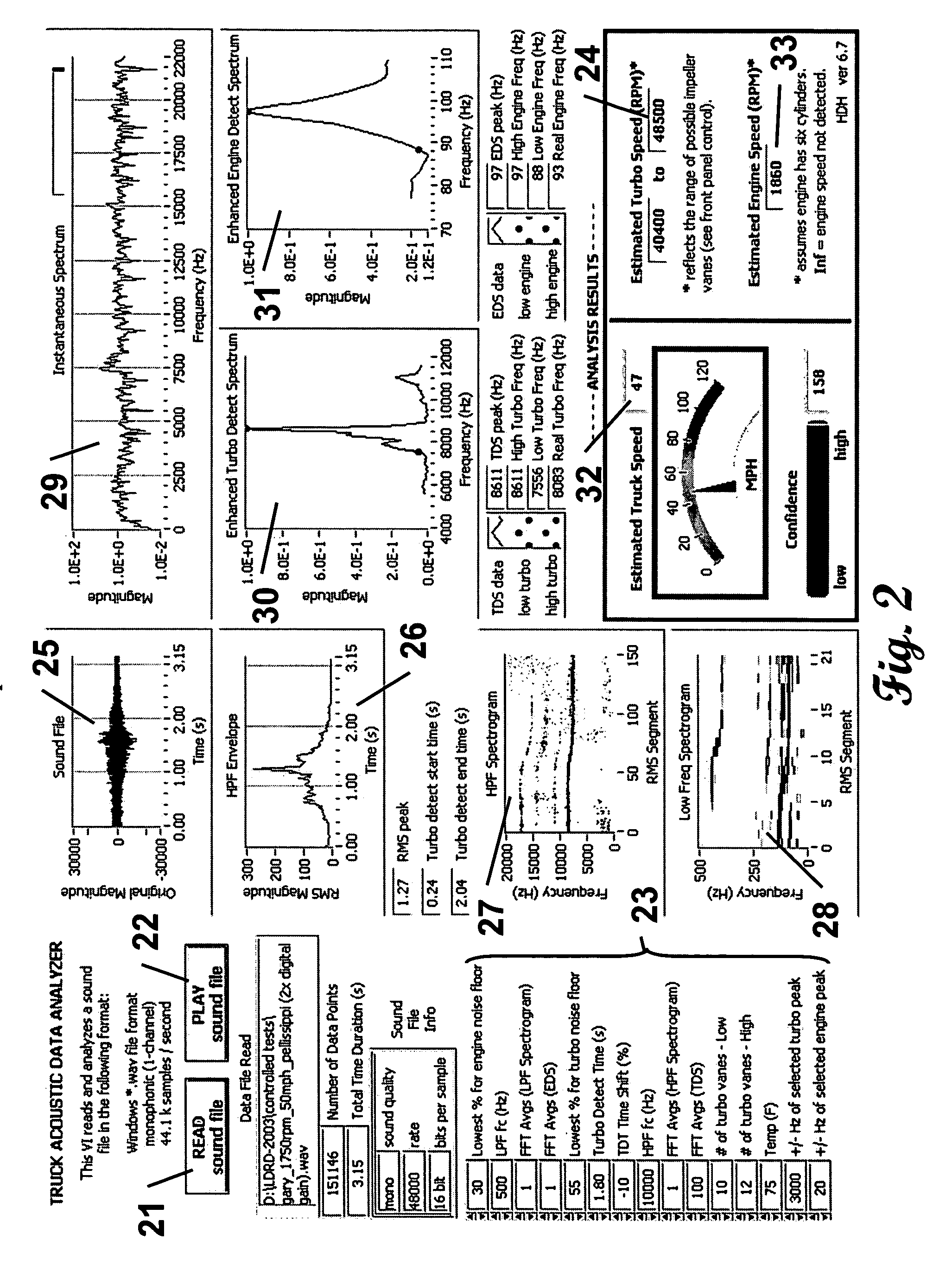Truck acoustic data analyzer system
a technology of acoustic data and analyzer, which is applied in the field of traffic monitoring systems, can solve the problems of disadvantages of wire loop systems, and inability to detect motor vehicles, so as to achieve the effect of maximizing the reliability of speed measurements
- Summary
- Abstract
- Description
- Claims
- Application Information
AI Technical Summary
Benefits of technology
Problems solved by technology
Method used
Image
Examples
Embodiment Construction
[0019] The TADA system is comprised of hardware and software, which together provide the full functioning capabilities of the system. FIG. 1 illustrates a preferred embodiment of how the system can be used to obtain remote measurements of truck speeds. Two microphones 1 and 2 are oriented in opposite directions so that microphone one 1 is preferentially sensitive to the truck 3 as it approaches the measurement location and microphone two 2 is oriented so that it is preferentially sensitive to the truck 3 as it retreats from the measurement location. The use of two microphones is not required, but has given very good results. One microphone has also been used successfully and would be acceptable. Whether one or two microphones are used, the intent is to produce a single electrical signal that is representative of the sound of the truck 3 as it approaches and passes the measurement location. If one microphone is used, it should be recorded as a monophonic (single channel) sound file, ...
PUM
 Login to View More
Login to View More Abstract
Description
Claims
Application Information
 Login to View More
Login to View More - R&D
- Intellectual Property
- Life Sciences
- Materials
- Tech Scout
- Unparalleled Data Quality
- Higher Quality Content
- 60% Fewer Hallucinations
Browse by: Latest US Patents, China's latest patents, Technical Efficacy Thesaurus, Application Domain, Technology Topic, Popular Technical Reports.
© 2025 PatSnap. All rights reserved.Legal|Privacy policy|Modern Slavery Act Transparency Statement|Sitemap|About US| Contact US: help@patsnap.com



